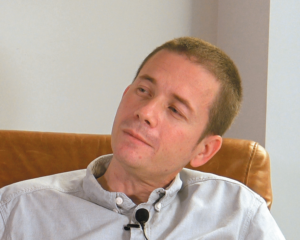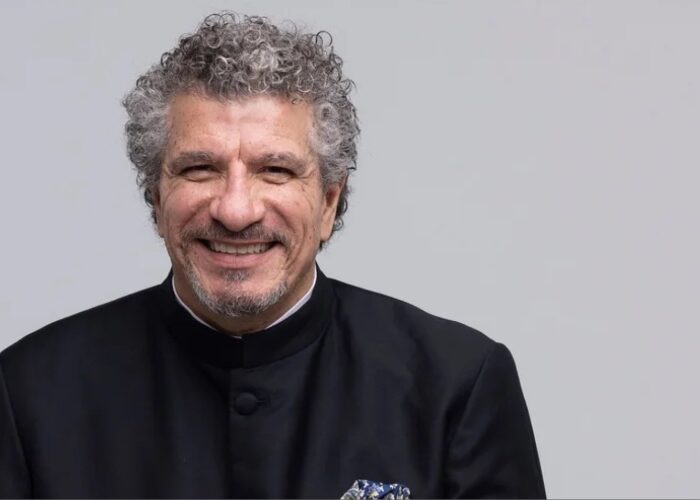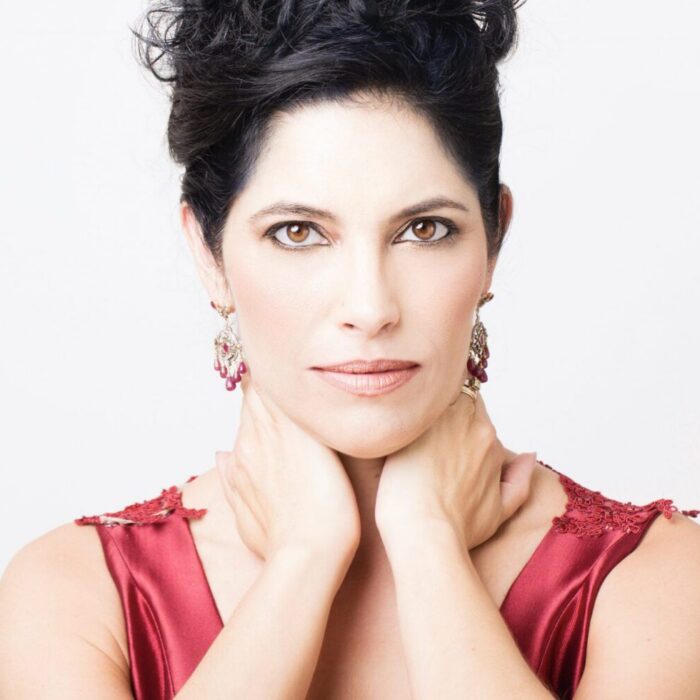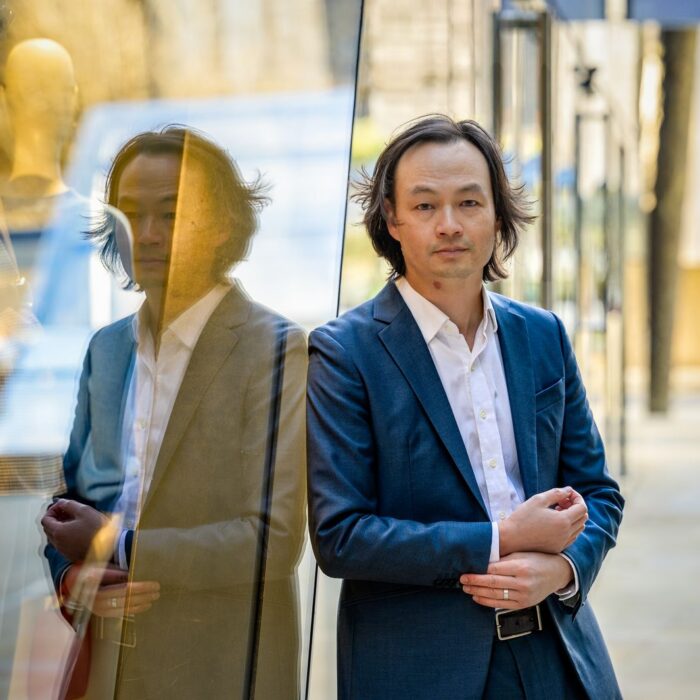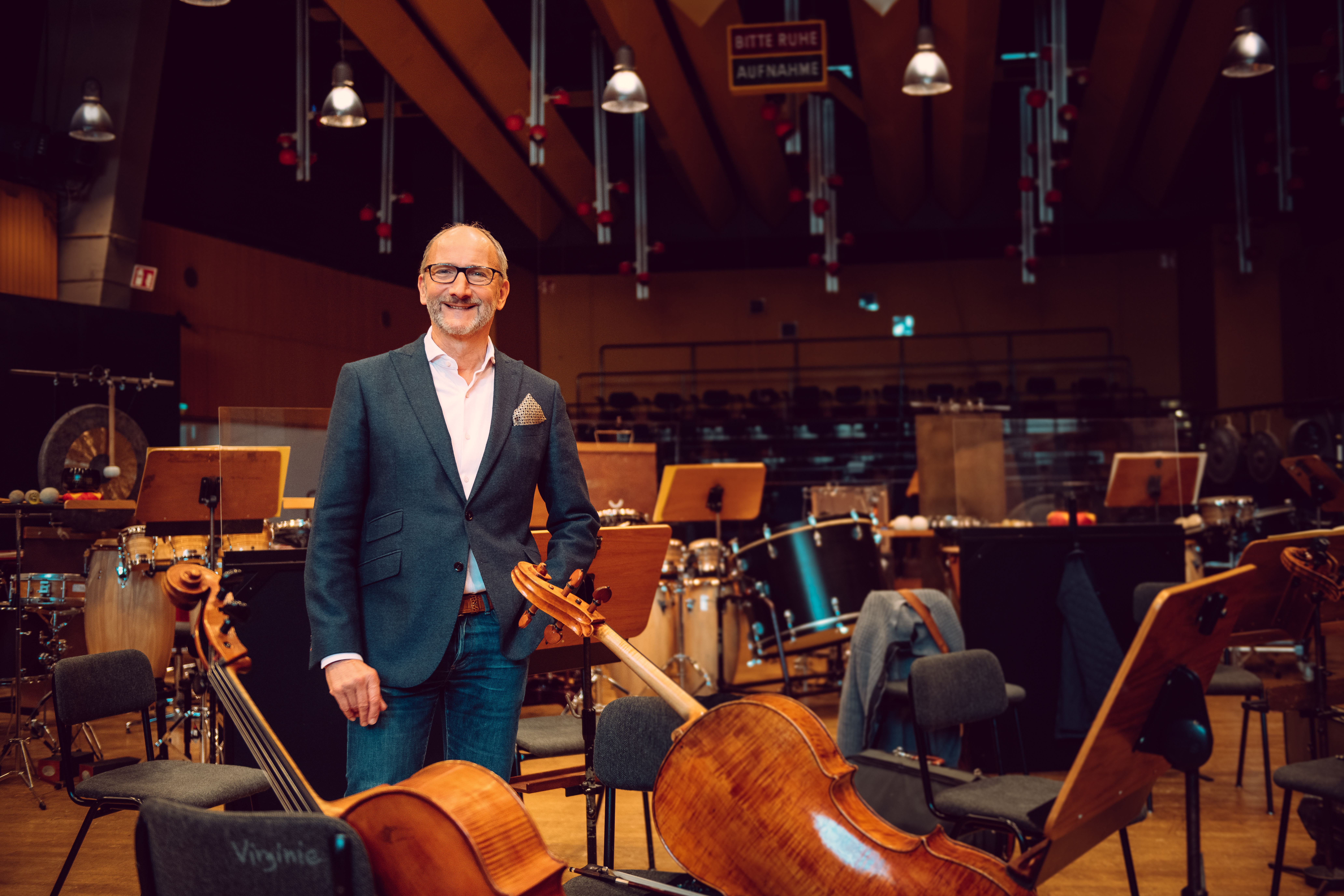
Q & A: Deutsche Oper Berlin Intendant Dietmar Schwarz on COVID-19 Safety Protocols As He Reopens His Theater
By Dejan Vukosavljevic(Credit: Jonas Holthaus)
“Nothing was produced for the bin.”
When the COVID-19 pandemic hurricane hit the world in full force in March 2020, opera houses all over the world were struck badly. All of them were forced to cancel the rest of their 2019-20 seasons, and many new productions were taken off the stage. However, the Deutsche Oper Berlin, the largest in the city, decided to reschedule its big premieres for the next two seasons.
OperaWire recently spoke with the Deutsche Oper Intendant Dietmar Schwarz about the company’s productions and safety protocols in the light of the ongoing COVID-19 pandemic.
OperaWire: When the COVID-19 pandemic hit in March, you had several big new productions planned for the rest of the season. Do you plan to reschedule them for the next seasons, and if so, how?
Dietmar Schwarz: Yes, we had three new productions that were scheduled from March to June 2020, and, unfortunately, we had to cancel all of them due to the COVID-19 restrictions. The premiere of Rued Langgaard’s opera “Antikrist” was canceled 10 days before the opening night. The stage design for the big premiere of Tchaikovsky’s opera “Pique Dame” was partly built. Also, the costumes for the production were partly tailored, even though the rehearsals had not already started.
Finally, the premiere of Wagner’s opera “Das Rheingold” was scheduled for June 12, 2020, as the beginning of our new Ring cycle. It was supposed to premiere in the production by Stefan Herheim and under the musical direction of Donald Runnicles.
All three productions will have their premieres – but we will present them within the next two seasons. Nothing was “produced for the bin.”
OW: You have carefully restarted the performances in June with the presentations of Dove’s version of “Das Rheingold” on the park deck. Why did you choose the reduced orchestration of “Das Rheingold” for this occasion? Do you plan to perform the regular version of “Das Rheingold?”
DS: In June we have in fact been the first opera house that premiered something that resembled a proper opera production. As we had to deal with the mandatory social distance between the musicians, we had to reduce the number of musicians in the orchestra, and we have found the reduced “Das Rheingold” version of the Birmingham Opera to be the most adequate.
Jonathan Dove and Graham Vick had developed a version for 22 musicians, lasting one hour and 50 minutes. This seemed to be ideal for the COVID-19 conditions, especially as we have a location on our parking lot, that offers a fairly good acoustic space for 225 visitors with the recommended distance. Neil Barry Moss had devised, within two weeks, a semi-staged production of the opera. General Musical Director Donald Runnicles conducted the performances, and we and our audiences were happy about this first sign of things coming back to normal.
We will premiere Wagner’s “Das Rheingold” in the production by Stefan Herheim later in the season – and we hope to start the Ring cycle with “Die Walküre” by the end of September.
OW: Soprano Lise Davidsen announced on social media that the rehearsals for “Die Walküre” at the Deutsche Oper Berlin are currently underway. What will be the process for rehearsing this production safely? How will longer operas be affected, in the artistic terms, by the safety concerns?
DS: We all try to do everything possible in terms of safety, but of course there exists no 100 percent reliability. By testing the artists daily we try to create the best and safest conditions for the rehearsals. We have the mission to offer cultural events for our audiences that is eager to watch live opera productions. Also, the artists and musicians are so keen to carry on with their work and to go back to rehearsals. We are definitely looking for the safest possible ways to make it possible.
OW: Klaus Lederer, the Senator for Culture and Europe of the City of Berlin, stated in June that he plans a very broad COVID-19 testing protocol for artists in order to enable closer contact between them onstage. Tell us more about the COVID-19 testing strategy at the Deutsche Oper Berlin.
DS: We only test artists that can’t keep the mandatory distance. For example, for our scheduled concerts such as the “Verdi Gala,” or the “Best of Aida,” the orchestra is on the stage, and the members of the orchestra can keep the mandatory distance between them. In this case, the musicians are not tested, and the singers can easily keep the mandatory distance relative to each other and to the audience. Also, the artists and musicians wear face masks at all times in our house, except when performing.
For the rehearsals of “Die Walküre” the situation is different, as it is the fully staged production, and the performers cannot keep the social distance. In this case, both the artists and the whole production team get tested on a daily basis.
We are lucky enough that we can cooperate with a laboratory that is conducting research to find better and cheaper ways of testing. That’s of great help to us.
OW: The Salzburg Festival has deployed a broad set of safety measures for its reduced 2020 festival. Have you been looking into the details of it?
DS: Yes of course, I have traveled to Salzburg and attended a performance of “Così fan tutte.” Sitting in a big auditorium with 1,000 spectators makes such a big and positive difference compared to the theaters in Berlin. Currently, we are allowed to admit only 25 percent of the maximum seating capacity in the auditorium.
For our first performance in the new season, “Baby Doll” on September 4, we are allowed to have 450 spectators in the house. As we have the maximum capacity of 1860 seats, I suppose that will give the impression of a quite vacant opera house. But we will know more very soon.
And all of the other measures that were taken by the Salzburg festival, like keeping distance, avoiding to offer drinks indoors, and wearing face masks, seem to support a safe theater evening experience.
OW: Having in mind that “Die Walküre” lasts 4 hours and 45 minutes with two intermissions, what is your current safety strategy for the audiences?
DS: First off, it is very important to have good ventilation in the spaces where bigger groups of people are gathered. Thus, the ventilation, social distance, and wearing face masks are the three most important factors for the safe theater experience.
Regarding “Die Walküre,” we can really see that the opera consists of three short works – in this case, three acts. The first Act lasts one hour, the second Act lasts one hour and 30 minutes, and the final Act lasts one hour and 10 minutes. We will have 2 intermissions, both lasting 45 minutes, which will enable strong ventilation. This is really the most important thing as far as we know – and the Deutsche Oper Berlin has really good technical conditions to make it work.
Also, we will provide disinfectant dispensers throughout the opera house.
OW: We all hope for the best, but the situation can quickly change. What are your contingency plans?
DS: During the last few months, we got used to acting on very short notice according to the existing recommendations. We are aware that this situation can last. The authorities are very careful in reopening the cultural events step by step. We keep very close contact with the authorities, and we analyze the situation on a daily basis.
The Salzburg Festival has given us a strong and convincing signal. We hope that we will be able to offer more performances in the near future, and also to perform for a bigger auditorium. Of course, we will stay on high alert.
If there is any sign of an infection that can be linked to our performances, we will have the contact details of our guests, so that the health departments are able to perform the track and trace.
